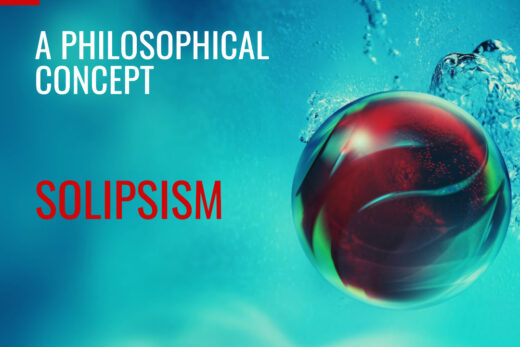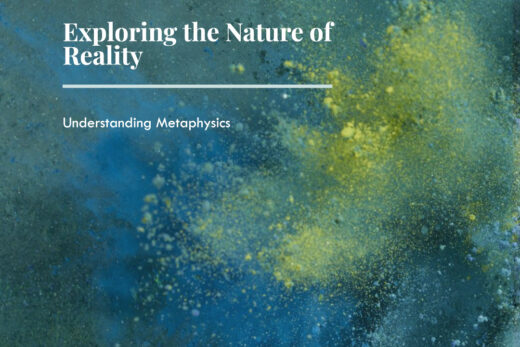Monism is an intriguing philosophical idea that simplifies the world’s complexities into one underlying essence. It suggests that despite our senses and daily experiences telling us about the diverse and multifaceted nature of the world, the ultimate reality might be much simpler. At its core, monism is about unity and oneness, stemming from the Greek word μόνος, which means “single”.
What Exactly is Monism?
Monism is a philosophical concept that proposes all things originate from a single substance or reality. Imagine you’re looking at a mosaic. Each tile appears different, but together, they form a single image. In much the same way, monism posits that what we perceive as a multitude of distinct objects, thoughts, or phenomena are merely facets of one single entity or substance.
Breaking Down Monism
Understanding monism involves appreciating its various types, each offering a unique lens to view this fascinating concept.
- Existence Monism: This type posits that there’s only one thing— the universe. All other entities or objects we recognize are arbitrary divisions of this singular universe.
- Substance Monism: This form of monism proposes that various things can be explained by a single reality or substance, be it matter or mind.
Each type of monism gives us a different perspective, helping us comprehend the broad concept of monism more deeply.
Monism vs. Dualism vs. Pluralism
In contrast to monism’s principle of oneness, dualism and pluralism paint a more diversified picture of reality.
Dualism argues there are two distinct and irreconcilable substances or realities. For instance, it can be seen in the concept of good and evil, or the mind and body dichotomy.
On the other hand, pluralism argues for three or more fundamental substances or realities. The classic example is a salad bowl— many different ingredients maintaining their identity, yet contributing to the whole.
Monism and Religion
Monism isn’t limited to dry philosophical discourse; it also has a profound impact on religions worldwide.
For instance, in Advaita Vedanta, a form of Hinduism, monism expresses the belief that the ultimate reality— Brahman— is a singular, unified whole. The diversity we see is considered a product of illusion.
Christianity, on the other hand, tends to align more with dualism, considering the concepts of the physical and spiritual realms. However, the belief in one God, monotheism, also shares elements with the monistic belief in a singular ultimate reality.
Monism in the Philosophy of Mind
Monism takes center stage in the philosophy of mind, where it offers unique perspectives on the relationship between our minds and the physical world.
Idealist Monism
This posits that only mind or spirit exists, suggesting that the world we see is a product of our minds.
For example, think of a book – the story isn’t in the paper and ink, but in your mind as you read and interpret the words.
Material Monism
Also known as physicalism, this belief posits that the material world is the primary reality. Our consciousness, thoughts, and experiences arise from our interactions with the physical world.
For example, think about how we use our smartphones. We send text messages, take photos, browse the internet, all of which seem like separate activities. But at the core, they’re all just the result of electrical signals interpreted by the physical hardware in your phone. This is similar to how Material Monism views the world: varied experiences, but all stemming from the physical.
Neutral Monism
This branch of monism argues that the nature of reality is neither mental nor physical— it’s something different and “neutral.”
Consider music, it has physical properties (sound waves) and mental impact (the emotions it evokes), but the “experience” of music isn’t purely physical or mental.
Final Thoughts
Through this journey, we’ve explored the concept of monism, its types, its contrast with dualism and pluralism, and its influence on religion and philosophy of mind. It serves as a testament to humanity’s endeavor to seek unity amidst diversity, simplifying the complexities of existence to a single thread of reality. The beauty of monism lies in its simplicity and the profound implications it holds for understanding the world and our place within it. It’s a testament to the power of unity
Frequently Asked Questions (FAQ)
What is an example of utilitarianism?
An example of utilitarianism could be a government implementing a vaccination program to protect the majority of the population from a disease, even though a small number of individuals might have adverse reactions.
Who developed the concept of utilitarianism?
Jeremy Bentham and John Stuart Mill are widely regarded as the primary contributors to the development of utilitarianism.
What is act utilitarianism in simple terms?
Act utilitarianism is a version of utilitarianism which suggests that the morality of an action should be judged by its individual outcome, i.e., each action should aim to bring about the greatest good.
Why is utilitarianism important?
Utilitarianism provides a practical framework for making ethical decisions by considering the overall happiness or good that can result from an action. It is especially useful in fields like public policy and business, where decisions can have wide-reaching impacts.
Who are some notable utilitarian philosophers?
Some notable utilitarian philosophers include Jeremy Bentham, John Stuart Mill, and more recently, Peter Singer. Each contributed significantly to the theory and its application.




